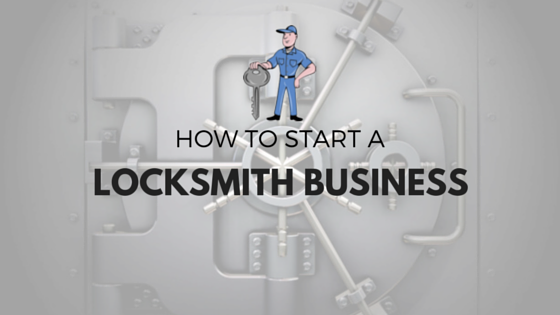- Locksmith & Home Security Technician
- Getting a career diploma in as little as 2 months.
- Gain experience with practical exercises and interactive assignments.
- Learn how to identify, create, and duplicate keys.
- Learn to work with several types of locks including safes, valuts, and auto.
- and more...
If you’ve ever wondered how to start a successful locksmith business then you’ve come to the right place.
Our goal is to help every locksmith, or future locksmith down the right path to starting their own business.
Because let’s be honest, the best person to work for is yourself!
But before we get started we must be brutally honest.
Starting a business is very exciting, but it can also be very difficult.
Don’t get discouraged because we have faith in you, but be prepared to work hard and work smart.
With that said, we’ve got a little bit of planning to do.
Table of Contents
- Write a Business Plan
- 1. Investigate the legal requirements of the state you want to practice in.
- 2. Practice, practice, practice.
- 3. Choose your locksmith specialization.
- 4. Find a location.
- 5. Decide whether to go mobile or brick and mortar.
- 6. Research what tools and equipment you’ll need.
- 7. Determine your organization’s structure.
- 8. Network and advertise.
Write a Business Plan
We’ve listed eight (8) steps below to help you start a locksmith business, but we didn’t include a business plan as one of those steps.
We did this on purpose.
A business plan is your single most important step.
We highly recommend completing a full plan before diving in head first.
Start here to learn how to write a locksmith business plan.
1. Investigate the legal requirements of the state you want to practice in.
We’ve made this step unbelievably painless for you by having already done all this research.
If you click here and scroll about mid-way down the page you’ll see a list of all the state requirements.
If for any reason your state isn’t listed then you may be home-free.
Some states don’t require any type of formal training or licensing, but to be sure you’ll need to check with your city or county office.
2. Practice, practice, practice.
Or maybe we should say train, train, train.
Locksmith training is typically not a requirement, but it is something we recommend.
For the most part, it’s fairly inexpensive in the grand scheme of things and will usually place you a step ahead of your competition.
You can read everything you need to know about locksmith training here.
Don’t stop with the training though, make sure you are practicing on your own.
If by any chance you’re a veteran locksmith then feel free to skip this step and move on!
3. Choose your locksmith specialization.
We’ve gone into detail about the career possibilities for a locksmith to make it easier for anyone new to the industry.
If you’re unsure about which path to take we recommend you talk to several local locksmiths and see what they have to say.
Make sure you keep in mind certain trends in the industry.
For example, automotive locksmithing is a timeless industry, but with the rise of technology, you might be better suited for electrical locksmithing, the choice is yours.
4. Find a location.
Don’t just assume that the best place to work is the town you live in.
It might just be that if you’re willing to drive thirty (30) minutes north to the next town you could be five (5) times as profitable.
Take into consideration the demographics and what the future growth for your area is.
Ask yourself, does this place need another locksmith?
5. Decide whether to go mobile or brick and mortar.
This is one of the tougher decisions.
But don’t sweat it.
We’ve created an in-depth guide on whether you should be a mobile locksmith or run your business from a typical brick-and-mortar location.
Read our guide on mobile versus brick-and-mortar locksmith businesses.
6. Research what tools and equipment you’ll need.
More than likely the answer to this question will come from the step above.
You will definitely need different equipment for a vehicle versus a store.
Whatever you do don’t just start buying random equipment without doing some research.
Ask yourself these questions:
- What tools and equipment are other locksmiths in the area using?
- Is there any tooling and equipment I could buy to set me apart from the rest?
- Do I really need to buy these tools upfront, or do I have enough to get started?
7. Determine your organization’s structure.
If you’re a one-man show then you may not think of yourself as an organization or company, but you are.
You need to determine if you’re going to operate as a sole proprietor, corporation, or Incorporation.
Again, talk to other locksmiths and find out what they recommend.
Also, keep in mind that you may want to hire employees in the future (or even right out of the get-go), make sure to factor this in.
8. Network and advertise.
Last, but not least, you gotta get the word out that your new business offers some amazing services that everyone needs.
Network within your industry and within other verticals.
For instance, it’s probably a good idea to get in good with the local police, fire department, or security companies.
Make sure that you’re the first person that comes to mind when they need a locksmith.
Unfortunately, word of mouth and friendships will only get you so far.
Consider creating a website, or even shelling out some cash for traditional advertising in a newspaper or on the radio.
Above all make sure you have fun.
Creating a business is hard work, but it needs to be work you enjoy.






hello, im very interested in enrolling for training and get certified.Please send me more info?
I would like to start a business ASAP but I would like to know if you can help me. Thanks
Sam
My brain hurts
I would like to stare a business